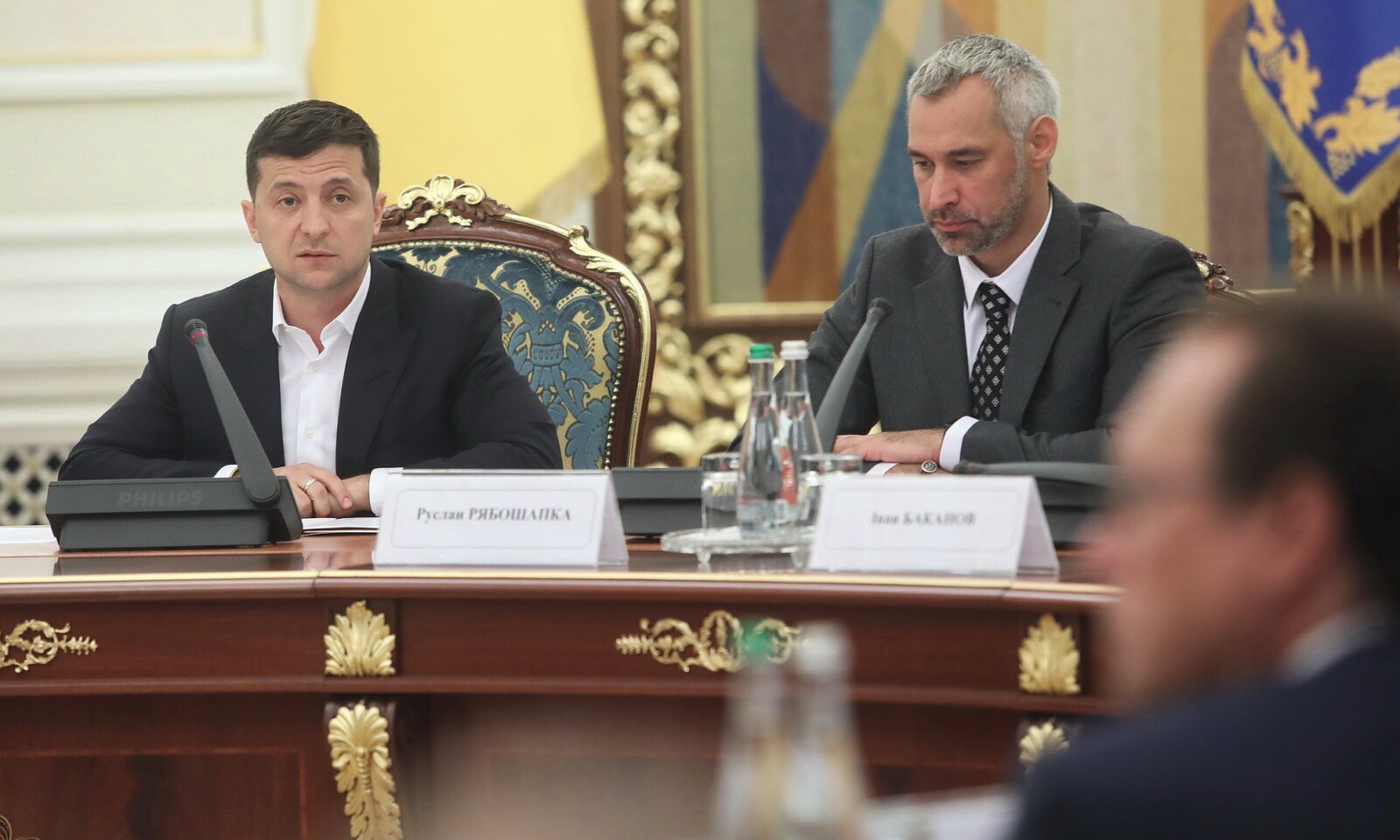Parliament launches reform of prosecution system in Ukraine
News, Projects
Criminal Law and White Collar Crime
05 December 2019

Vladyslav Hryshchenko, counsel at the Ario Law Firm comments to Kyiv Post the law on urgent measures to reform the country’s prosecution authorities.
On Sept. 19, Ukraine’s parliament, the Verkhovna Rada, passed the law on urgent measures to reform the country’s prosecution authorities.
The law has been welcomed as a key first step, but also met criticism from civil society, former members of parliament and even the expert team of the Verkhovna Rada.
Vladyslav Hryshchenko, a former prosecutor and current counsel at the Ario law firm, believes that “this law will set in motion a complete reformation of the prosecution authority and enable the review of staffing policy.”
The law’s stated goals include reassessing the currently employed prosecutors, cutting the number of prosecution staff in the country from 15,000 to 10,000, making a cosmetic change to the name of the Prosecutor General’s Office, firing bad prosecutors and hiring new ones, cutting the military prosecution branch, as well as opening access to the profession of prosecutor for all citizens of Ukraine with legal education and sufficient experience.
The law will enter into force after it is signed by the president and published in the parliament’s official newspaper, Holos Ukrayiny (the Voice of Ukraine).
This is one of the first documents of the new parliament’s anti-corruption effort. All of the currently employed prosecutors will have to pass professional tests and be vetted before re-hiring to serve in the Prosecutor General’s Office.
Anti-corruption activist and journalist Sergiy Leshchenko, who served in the previous convocation of the Verkhovna Rada, believes that this law will ensure the “rebooting of the prosecution service.” Moreover, Leshchenko says that it is high time for this to happen: “If we keep on working within the system created by (former Prosecutor General Yuriy Lutsenko), the corruption will be preserved.”
The decreased number of jobs in the future Prosecutor General’s Office suggests that thousands of prosecutors will be laid off – many as incompetent, many as morally unfit.
However, experts believe that cutting 5,000 jobs in the prosecution service will put an enormous burden on the remaining workforce. Cutting so many jobs, in Hryshchenko’s opinion, “is not a healthy situation.” This is because of the significant volume of obligations that the average prosecutor is currently carrying: “we have prosecutors, which handle 300-400 cases.” As a rule, prosecutors are overburdened with cases.
But Leshchenko has a different opinion: “I know that the prosecution’s investigative function expires at the end of this year. Only its oversight function will remain. Respectively, after (the investigative) function is transferred to another authority, the detectives of the prosecution authority will either become prosecutors or will move to (serve in) other bodies.”
The expert team of the Verkhovna Rada has criticized several provisions of the law. The experts opposed renaming the prosecution authority from “Generalna Prokuratura” into the Prosecutor General’s Office on the grounds that “office” is not a Ukrainian word and implies a subsidiary organization.
(The Kyiv Post has always translated “Generalna Prokuratura” as “Prosecutor General’s Office,” because the Ukrainian name lacks a clear and direct translation into English. However, the name proposed in the law is literally “Prosecutor General’s Office.”)
Another issue is eliminating the military prosecution branch. Verkhovna Rada experts have opined that military prosecution requires special knowledge of military laws and aspects of military service. Thus, this work cannot be carried out by lawyers without special training.
Experts have also warned that the law will give the prosecutor general the right to form the prosecution system in Ukraine nearly single-handedly, creating many corruption risks and granting that official excessive power.
Moreover, the process of firing and then rehiring prosecutors deemed fit for office violates employee’s right, the experts say.
Criticism of the new law has also come from activists and former members of parliament. Leshchenko criticized the provision of the law that provides for the existence of two first deputy prosecutors general.
Incumbent Prosecutor General Ruslan Riaboshapka is believed to be an independent actor with strong ethics. Riaboshapka has already appointed Vitaliy Kasko, a reputable lawyer, as his first deputy.
But Leshchenko believes that the powerful chairman of the Security Service of Ukraine, Ivan Bakanov, will push his own loyalist, lawmaker Sergii Ionushas, into the position of the other first deputy prosecutor general. That could hinder Riaboshapka’s independence.
In a recent post on his Telegram messenger channel, Leshchenko analyzed Ionushas’ statement on Facebook. There, the pro-presidential Servant of the People party lawmaker expressed happiness about the passage of the new law and his own role in the process as deputy chair of the Verkhovna Rada’s law enforcement committee.
Ionushas also wrote that “the relaunch of the prosecution authority will be up to Prosecutor General Ruslan Riaboshapka.” Because Ionushas and Bakanov have enjoyed long and fruitful cooperation in business, Leshchenko is afraid this tandem could be detrimental to prosecutorial independence.
Leshchenko received information about the imminent appointment of Ionushas from his sources, which he declined to reveal to the Kyiv Post. For Leshchenko, the provisions of the law ensuring the appointment of two first deputy prosecutors general is the new legislation’s major drawback.
Anti-corruption activist Oleksandr Lemenov also said Ionushas was to become the first deputy prosecutor general. Lemenov, too, declined to reveal his sources.
Lemenov is primarily preoccupied with the lack of independence of the Prosecutors’ Council, a prosecutorial self-governance board, and the Qualification and Disciplinary Commission of Prosecutors (QDKP). The latter has managed to make former Prosecutor General Yuriy Lutsenko disciplinarily liable “as soon as he lost political influence, which demonstrates the political dependence of the QDKP.”
Lemenov is sure that “we have a human capital problem in Ukraine, as we have no politically independent people.” The first reform step for Lemenov would be “to clean up the prosecution bodies.” Lemenov says that the old political elites, including those surrounding former President Petro Poroshenko, have systematically flooded the prosecution authority with their own loyalists.
Hryshchenko says that this new law “features some nuances that require discussion, but, in general, represents a really good initiative.” He says self-governance of the prosecutors is one of these “nuances.”
Instead of cutting self-governance possibilities, Hryshchenko suggests reviewing them: “It is good to have self-governance, and I agree that the current self-governance authorities need to be viewed critically. But this law narrows the scope of the (self-governance) authorities and this interesting issue calls for attention.”
Although critical, Lemenov also thinks that the law is a step forward in reforming the prosecution. “I see positive things in it, because what we have now cannot continue any longer,” he says. “We have failed twice in five years at reforming the prosecution.”
Chapters


